John Williams's greatest film soundtracks as Gramophone originally reviewed them
Gramophone
Tuesday, February 6, 2018
The original reviews of some of the finest film music ever written, including Jaws, Star Wars and Close Encounters of the Third Kind
John Williams has – remarkably – been nominated for an Academy Award more than 50 times. Everyone will have a favourite film score by Williams, and doubtless many of these will not be included here. Nonetheless, it is interesting to return to our original reviews of a few of Williams's most highly regarded scores, featuring music which has gone on to achieve a unique status in modern cinema, and to see what Gramophone's critics made of them when they were first released.
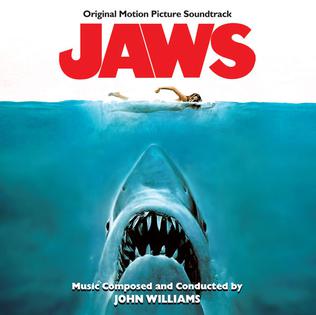
Jaws
Music from the film soundtrack conducted by the composer
'Ever since his lively and inventive score for The Reivers I have considered the American John Williams one of the best of today's film composers, and this is one of his finest works to date. Writing on the sleeve, director Stephen Spielberg compares him to Erich Wolfgang Korngold, and listening to the twelve short tone poems recorded here one sees exactly what he means. I don't think I have heard the ocean conveyed so successfully in music since Korngold's score for the Errol Flynn sea adventures, and in many ways this surpasses them. Although he has composed a striking main theme Williams has eschewed the lazy way of Hollywood composers nowadays, whereby every track is a variation on it. Instead he has written an original piece of music for each occasion and incident in the picture and the results are both graphic and exciting. One can imagine each scene even without seeing the picture, so vividly pictorial is his writing. For once this is a record to play again and again. Incidentally it is technically magnificent as well, a recording of the highest possible quality. Recommended not only to those who want a film souvenir, but to anybody who enjoys truly exciting music.' Peter Myers (March 1976)
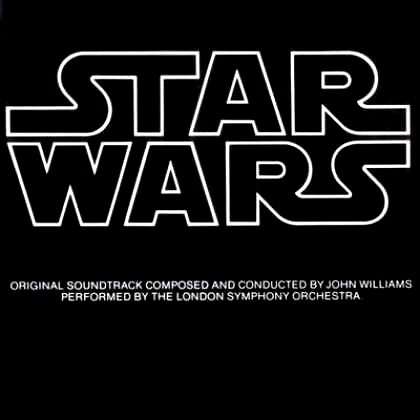
Star Wars
Music from the original motion picture soundtrack
London Symphony Orchestra / John Williams
'The makers of Star Wars have openly acknowledged its debts to traditional genres: Flash Gordon, John Ford's The Searchers and the Tarzan series are only a few of its avowed prototypes and its tone and spirit are fundamentally those of the great Warners adventure films of the late 1930s and early 1940s – superb entertainment but basically two-dimensional and without any pretensions to profundity or to the ideals of High Art. Complementarily the music, too, is firmly and intentionally anchored in tradition; stylistically it's located somewhere between Korngold and Prokofiev and contains little that falls outside a romantically-oriented frame of film music reference.
'Derivative though it may be the music is composed with immense professionalism and panache and makes a highly enjoyable listening experience; its popularity is well deserved. The music is sufficiently colourful and diversified to hold one's attention throughout, even in the 12-minute-long 'Last Battle'; and to follow it through with an analytical ear is to note many subtleties of development, variation and even counterpoint which fail to register on the actual soundtrack. The composer draws lusty, brawny playing from the LSO and the recorded sound is vividly realistic.' Christopher Palmer (March 1978)
This clip of the final Throne Room scene shows what the film would have been like without John Williams's music. And while it is extremely amusing, it also shows what a blank canvas Williams had to work with musically
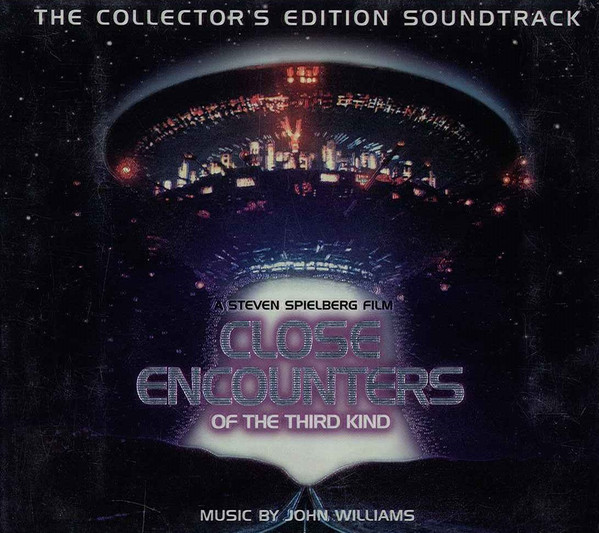
Close Encounters of the Third Kind
Original soundtrack (remastered collector's edition, 1998)
'Exemplary stuff. Not only does Arista 's brand new 20-bit digital master show a massive sonic improvement over those previous incarnations from Alhambra and Varese (there's now far more bloom, range and lustre than before - oh yes, and some fabulous deep bass sonorities, too), producer Shawn Murphy and executive producer Laurent Bouzereau have, in collaboration with both John Williams and Steven Spielberg, wielded together an extremely generous 77-minute sequence which, as well as sensibly mirroring the movie's narrative elements, restores nearly 35 minutes of extra material. The consequent insights into Williams's masterly organic thinking really are too numerous to mention, so I'll make do with just one potent example. At 0'57" into "Encounter at Crescendo Summit" (track 5 - an early cue neither previously released nor used in the fiIm), horns intone a brief ascending idea that seems of no great passing significance. Violins take up the same motif at 1'19" into "False alarm" (track 7, and another first appearance on disc). Ten minutes on, and both "Forming the mountain" and "TV reveals" (tracks 11 and 12 - yet again, never before released) contain further, more extended workings of the same material, until, at 0'38" into "The mountain" (track 14), we finally hear the first exultant full flowering of the theme associated with Devil's Tower as it looms before Roy and Gillian in all its isolated splendour (remember that unforgettable crane shot?) A trivial series of observations, you might think, but one, I would suggest, which irrefutably demonstrates the composer's compellingly rigorous long-term scheme.
'There are those who maintain that Williams has yet to surpass the stunning achievement of his score for Close Encounters: on the evidence of this thrilling album, I'm inclined to agree. Arista's packaging is very much in the luxury class, and if a more desirable reissue comes my way during the remainder of 1998, I'll be extremely surprised.' Andrew Achenbach (September 1998)
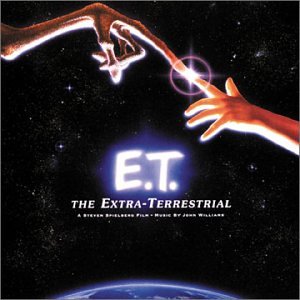
E.T. the Extra-Terrestrial
Music from the original motion picture soundtrack
'After Star Wars and Close Encounters of the Third Kind, it would have been easy for John Williams to repeat himself in ET and settle for musical cliches, all too redolent of composers in a hurry to meet the deadline set by their producers. So it says much for his collaboration with Steven Spielberg that each of his scores has been carefully thought through, and that on this occasion he has capped all his previous work with a consistently magical series of compositions culminating in no mere hollow apotheosis, but a genuinely triumphant conclusion where the fanfares joyfully celebrate ET's departure for home to the image of a cascading rainbow. Another aspect of these selections I rejoiced in was the absence of all recent trends in 'pop' scoring; the track "ET and me" is a glistening composition for harp and strings, while in "ET phone home" the composer's use of a celesta to pinpoint the child/alien relationship conjours up a happy comparison with Tchaikovsky's Nutcracker. Elsewhere one recognizes other now familiar touches from Williams such as the rushing scales on high winds and the ostinato figures that propel his sketches aiong. As far as the musical quality of this score is concerned I need only reiterate that no purely instrumental soundtrack has given me as much delight to review as this one.' Adrian Edwards (April 1983)
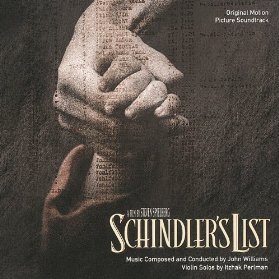
Schindler's List
Original soundtrack with Itzhak Perlman (vn) Boston Symphony Orchestra / John Williams
'How to provide musical accompaniment to a film depicting in graphic, almost visceral detail one of the worst atrocities in history? Perhaps only Steven Spielberg could have made such a film, yet still managed to celebrate our frail human virtue of compassion; certainly only John Williams could have provided such beautiful, yet fitting music. Restraint and dignity - qualities not often associated with Spielberg/Williams collaborations of the past - characterize this poignant and moving score. A less experienced composer might have been tempted to indulge in hand-wringing melodrama. But not Williams. A deceptively simple theme communicates aching, anguished pathos, but never overstates it. Williams and Perlman make this music cry the pure, compassionate tears of incomprehending humanity.
'Analogue recording complements the film's black and white visuals, as well as giving a warm glow to Perlman's prominent solo violin. There is little discernible change in sound between the two recording venues and orchestras of Symphony Hall, Boston and a Californian soundstage. Certainly a disc that no Williams fan should be without; perhaps a disc no lover of genuine, heartfelt music should be without either.' Mark Walker (August 1994)
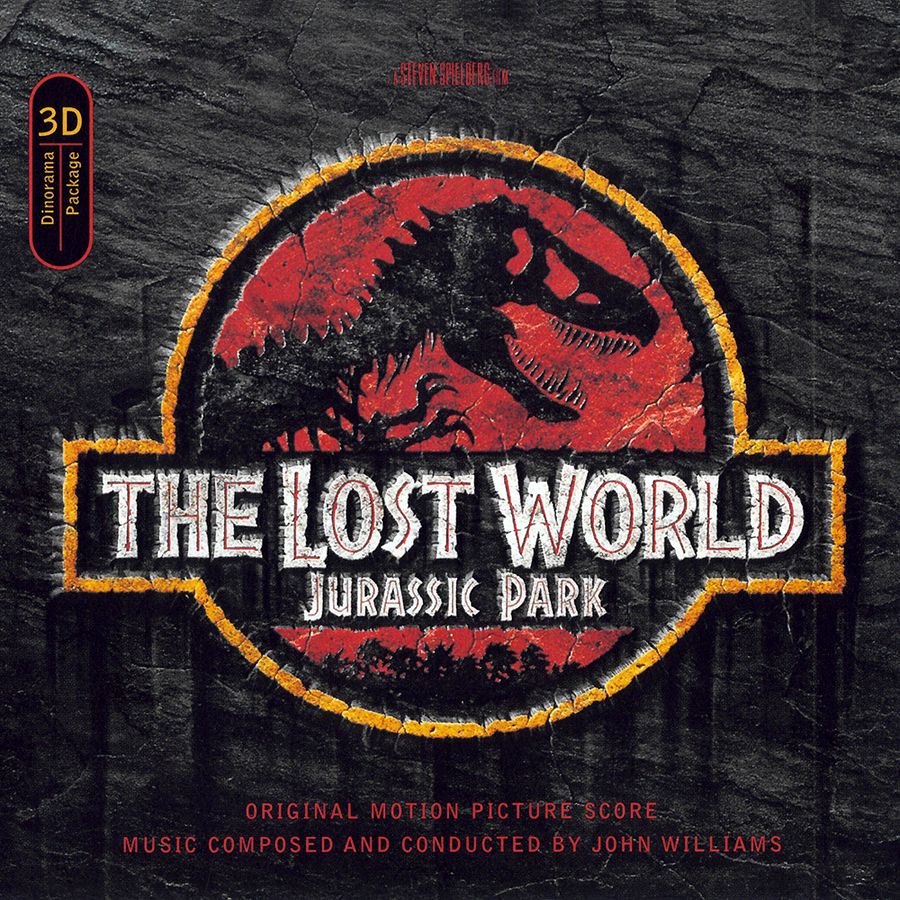
The Lost World: Jurassic Park
Original soundtrack
'Although Schindler's List (1993) deservedly brought credit to both its director and composer it was an atypical project for the SpielberglWilliams partnership. Their stock-in-trade fantasy/adventure style was better exemplified by the same year's Jurassic Park, which elicited from Williams an invigorating orchestral tour de force, given a degree of gravitas by a surprisingly delicate "dinosaur" chorale.
'Williams's score for The Lost World, unlike, for exa mple, the Indiana Jones sequels (or Star Wars for that matter) makes almost no musical reference to its forebear. In the original, that elegaic chorale conveyed a childlike sense of wonder at our first sight of those magnificent prehistoric beasts (even if things turned nasty later on); from the outset the inhabitants of The Lost World are obviously monsters to be feared. This score does, however, have one obvious predecessor: not Jurassic Park or even Jaws, but King Kong. The echoes of Kong's mighty footsteps, vividly depicted by Max Steiner in 1933, reverberate here in the terrifying tread of the T-Rex, similarly described by Williams with a thudding ostinato for percussion and brass.
'There is a thrilling new fanfare-like theme redolent of excitement and adventure, but the overall tenor of this score is one of terror. In the three-minute concert suite which opens the disc, pounding drums beat out an insistent jungle rhythm over which Williams marshals his large orchestral forces, building towards a characteristically bravura, brass-led crescendo. Whereas the first score's expansive principal themes suggested open spaces, here all takes place in tangled undergrowth, fraught with confusion and danger: immediately after this grand opening we are plunged into musical disorder and nightmare: the skittish shriek of woodwinds, string glissandos swirling over agitated percussion. "The Stegosaurus" provides a welcome pastoral interlude, but elsewhere the dramatic intensity of cues such as "The Hunt" and "The Raptors Appear" is relentless. In the predictably virtuosic finale the overwhelmed listener is left to marvel at Williams's display of orchestral pyrotechnics, until a recapitulation of the original Jurassic Park music for the end credits suite allows time to draw breath.
'The disc is presented in a "3D Dinorama Package" - a gimmick, yes, but anything which might encourage a young audience to listen to some classic film music with such a distinguished pedigree can only be a good thing.' Mark Walker (September 1997)
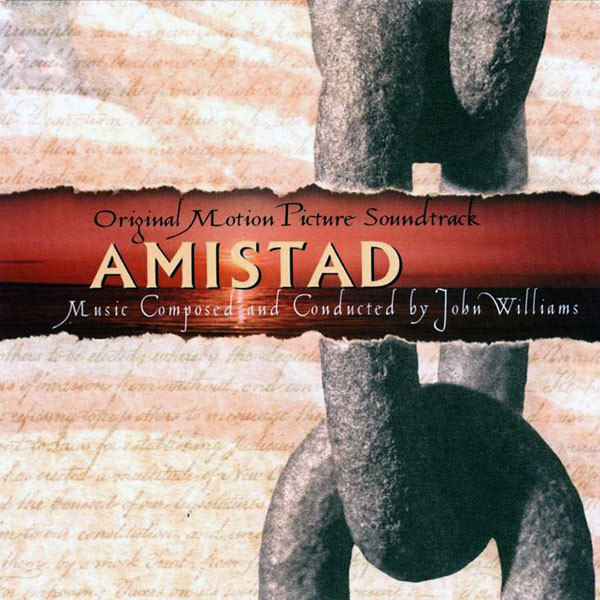
Amistad
Original soundtrack
'Filmmaker Steven Spielberg effortlessly glides back and forth between gloriously unbridled adventure flicks and films of considerable social conscience. His long-time collaborator, composer John Williams, must constantly change tack as Spielberg swiftly reverts from outlandish shenanigans to the perceptive and the heartfelt; luckily Williams's extraordinary facility is such that, whatever the brief, he always provides surpassing music - and his collaboration with Spielberg has regularly yielded textbook examples of the art of film scoring - with Williams's music as technically dazzling as it is emotionally fulfilling.
'Here, Spielberg gamely grasps a particularly thorny branch of American history in telling a tale which, in the main, does not reflect too brightly on the United States' early involvement in the African slave trade. Williams invests Amistad with what are effectively two outstanding scores. The African sequences engender some of his most evocative writing yet: a yearning mezzo-soprano, deep-barrelled male chorus, pulsating pseudo-African rhythms and ethnic flutes conjure a continent in turmoil, the music's inherent sadness a reflection on the terrible plight of the bonded Africans, with the mournfully glorious "Cinque's theme" capturing all the melancholy, all the regret of an enslaved spirit. Lording over all is a memorable musical setting of Bernard Dadie's poem Dry your tears, Afrika which opens and closes the album. For the film's American sequences Williams provides, essentially, a second and separate score: trumpet, horn and homely string harmonies cry America, this is noble, dignified music luxuriating in simple splendour. John Williams has composed many outstanding and affecting film scores, but this seems even more impassioned than most, revealing a depth of feeling more usually associated with music for the concert-hall rather than the cinema. The potency of this music has led some critics to suggest it is often too intense, too overtly dictating the emotional balance of key sequences in the film; but that need not concern us here - the music on disc is enthralling - and Shawn Murphy's recording is perfection itself.' David Wishart (May 1998)
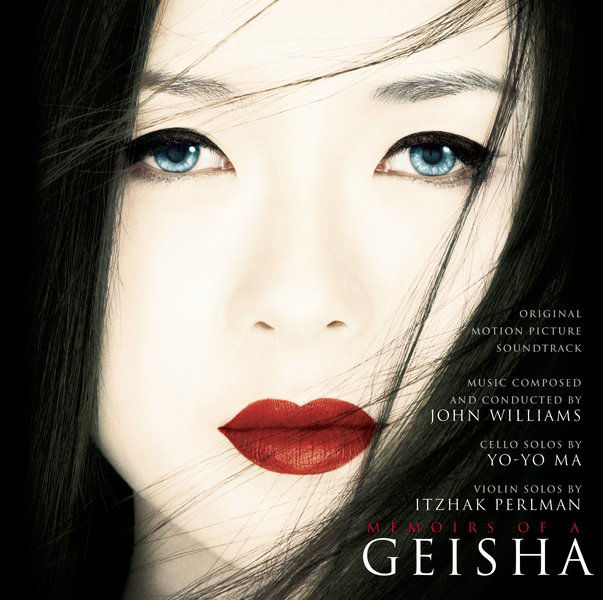
Memoirs of a Geisha
Original soundtrack with Itzhak Perlman vn Yo-Yo Ma vc orchestra / John Williams
'John Williams, we're told, has relinquished his franchise on the Harry Potter cycle to concentrate on films offering a greater variety of subjects, such as Memoirs of a Geisha. Based on a bestseller, this is a prestigious production to which Williams has brought his considerable artistry, along with that of his star soloists.
'This score is thoughtful and elegant, complementing the film's visual beauty, and the antithesis of screen music with which he's more closely associated (Star Wars, Raiders of the Lost Ark). The subject matter, one might say, has brought out the feminine muse in Williams.
'Itzhak Perlman brings a magical and peculiarly oriental sound to his violin-playing. The sinuous cello theme associated with the Geisha, played by Yo-Yo Ma, is heard in various metamorphoses throughout the soundtrack. They are joined by Japanese players on shakuhachi and koto - the Japanese bamboo flute and zither, oddly enough of Chinese origin. Their individual timbres combined with violin and cello leave a haunting impression, not unlike the world created by Tippett in his Triple Concerto (try track 13 from around 1'18"). Williams, like Tippett, has followed this path in the autumn of his career.
'Other distinctive cues include a salon waltz, "The Chairman" (track 8), and a running minimalist theme introduced in "Destiny's Path" and heard again on the closing track, a miniature tone-poem that precises the entire score. The luxuriant recording enhances a fine piece of work.' Adrian Edwards (April 2006)
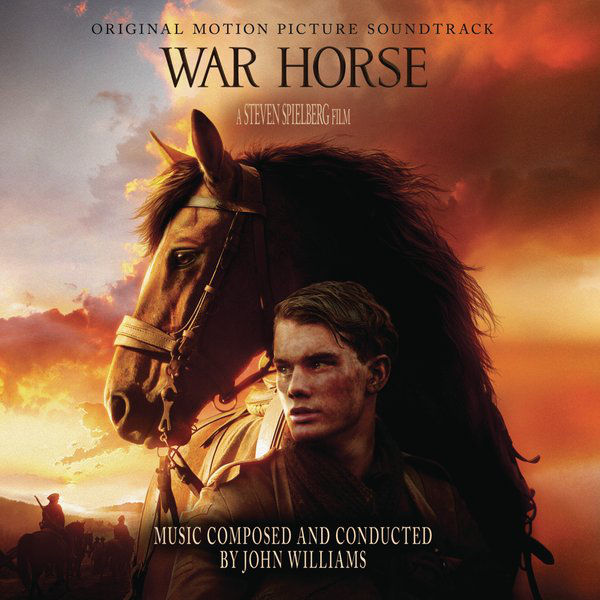
War Horse
Original motion picture soundtrack
'John Williams’s particular gifts for lyrical themes and transparent writing bring the screen version of War Horse vividly to life on this superbly played soundtrack. Pastoral images of the English countryside in the opening cue, ‘Dartmoor 1912’, echo the spirit of George Butterworth and the folksong school of Cecil Sharp; then, as the tempo quickens to a scurrying allegro, the pulse races in anticipation of the noble principal theme. Williams varies this affirmative statement and other motifs in the cue ‘Ploughing’, criss-crossing them in masterly fashion. Other cues add purpose and variety to a majestic score that doesn’t gloss over the futility of war. In the elegiac cues ‘Ruined Crop’ and ‘The Reunion’, Williams ponders over such thoughts in tranquillity.' Adrian Edwards (July 2012)











